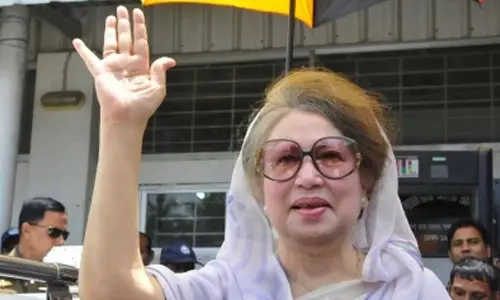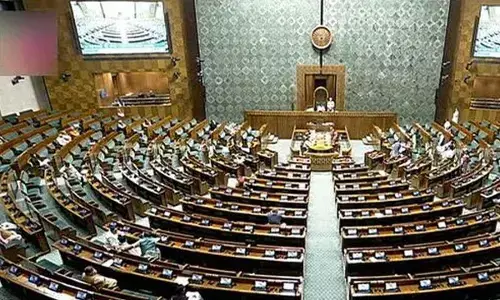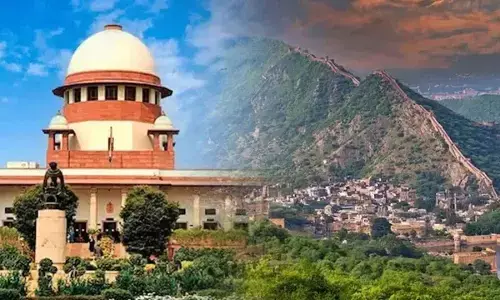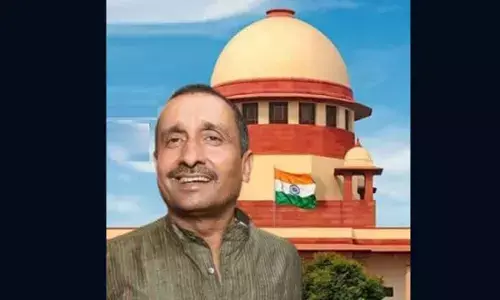Labour reforms: Govt predicament
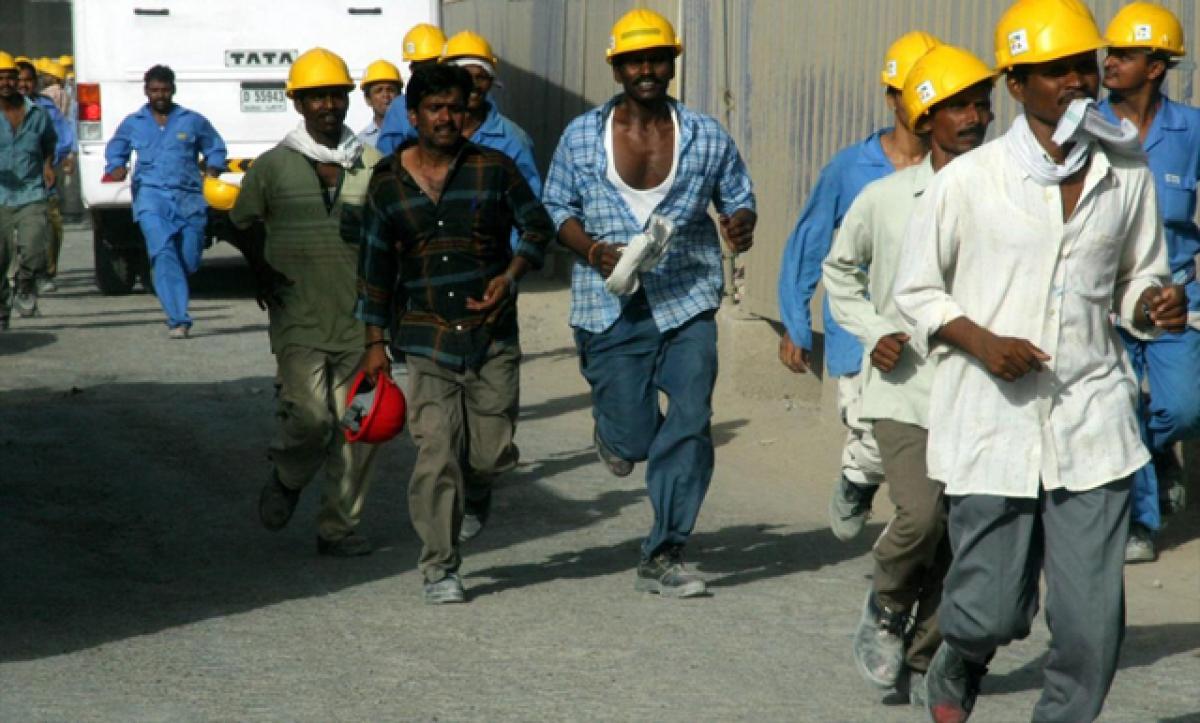
Labour reforms: Govt predicament. The proposal to integrate three labour laws – the Trade Unions Act, The Industrial Disputes Act, and the Industrial Employment (Standing Orders) Act into a consolidated code for industrial relations (IR) has far-reaching consequences for both the labourers and the industry.
The Supreme Court has strongly disapproved of the policy of hire and fire adopted by a number of employers – both public and private – and also approved of by some courts in the name of globalisation. It held that this policy ignored the fundamental as well as the constitutional and human rights of the workers
The proposal to integrate three labour laws – the Trade Unions Act, The Industrial Disputes Act, and the Industrial Employment (Standing Orders) Act into a consolidated code for industrial relations (IR) has far-reaching consequences for both the labourers and the industry. The fear that the move will benefit the industry at the expense of labour has gripped the world of workers and has led to revival of workers’ movements that remained rather dormant for some years.
.jpg)
Labour reforms are no doubt overdue from the angle of workers as well as management. However, the reforms finally coming seem to be in response to global pressures and the World Bank advice to relax industrial conditions in India with a view to encouraging expansion of industry and commerce.
The essence of labour law reforms, as understood by the employees, is withdrawal of protection for labour gained over a long period of struggle. For their very existence and “decent work” in the Indian economic and social environment, employees depend on protective regulations.
“Decent work” is a term introduced by the ILO in 1999. Its goal is to promote “opportunities for women and men to obtain decent and productive work in conditions of freedom, equity, security, and human dignity.” Its four major pillars are opportunities for work and income, respect for rights at work, social protection, and strong social dialogue.
Indian labour laws, as developed since the British rule, are highly regulated and have grown rigid in favour of labour under the influence of socialist ideals. The problem today is to match labour laws with the requirements of liberalisation and globalisation without adversely affecting labour interests and the hard won benefits. The need of the day is to remove any barrier that labour may pose in achieving the goal of “Make in India.”
Expectations are high in the industrial sector that labour reforms would spur manufacturing boom and also create jobs. On the other side, trade unions are getting ready to confront the government on suspected anti-labour reforms. In their view, the government is dismantling the protective laws and exposing labour to the dictates of purely market economy.
A meeting held between 11 Central trade union leaders and three Union ministers for power, labour, and petroleum failed to reach an agreement on the charter of demands from the unions pending with the Government from the time of UPA regime. .
Globalisation has brought about rapid and vital changes in the world of work. Barriers to trade in the form of government regulations, distance and time factors, and communication delays have been conquered. Therefore, the remaining barriers in the form of individual rights, consumer opinions and rights, labour demands, and environmental concerns are increasingly coming under regulations to facilitate industry and trade. These barriers cannot be confronted by technology. These are essentially human problems.
The ILO Recommendation 198 adopted in 2006 relating to employment relationship, enjoins member-States to formulate and apply a national policy that is gender-sensitive and a result of periodical social dialogue for reviewing laws and regulations to guarantee effective protection for workers in employment relationship. It also recommends establishment and use of a mechanism for monitoring developments in the labour market and organization of work to promote employment relationship.
But, globalization has on the whole produced a negative impact on workers due to shrinking of the formal sector and increase of the informal sector. Union membership has drastically reduced. Labour market flexibility has become an important aspect of globalisation – a situation called “precarious employment” in some countries.
It is in this context, labour laws now form a key area for reforms. The Government of India has set up a reforms cell in the Labour Ministry to carry out a major revamp of the laws considered by industry as complex and archaic. The cell will particularly deal with small factories.
A major task is said to be clubbing of 44 labour laws into five codes pertaining to wages, industrial relations, social security and welfare, safety and working conditions, and employment training. In labour circles, there is a fear that the government is contemplating flexibility in employment which would, in the opinion of employees, make dismissal and retrenchment easier.
The entire labour reforms is understood simply as adoption of what is called “hire and fire policy,” common in the developed western world. The Supreme Court has strongly disapproved of the policy of hire and fire adopted by a number of employers – both public and private – and also approved of by some courts in the name of globalisation. It held that this policy ignored the fundamental as well as the constitutional and human rights of the workers.
Dealing with a retrenchment case in 2009, the Supreme Court noted, “It needs no emphasis that if a man is deprived of his livelihood, he is deprived of all the fundamental and constitutional rights, and for him, the goal of social and economic justice, equality of status and opportunity, the freedom enshrined in the Constitution remains illusory.” The judgement expressed that the approach of the courts must be compatible with the constitutional philosophy of which the Directive Principles that speak of justice to workers form an integral part.
Hire and fire policy, obviously devised to suit exclusively the requirements of industry, may help promote investments and manufacture. But, is India with a large section of BPL people, and larger middle classes struggling under inflation ready to adopt such a policy is a big question. At present, Indian workers are protected by law against sudden retrenchment.
Termination of employment is regulated in India under the Industrial Disputes Act 1947, and the Industrial Employment (Standing Orders) Act 1946. Surveys of labour conditions have shown that countries adopting high flexibility in employment have high level of social security termed as “Flexicurity.” The extent of security, however, varies between different countries.
India has practically no social security schemes with the exception of much publicised food security for the starving, and subsidies for some essential items. Ever increasing price levels are hitting severely all economic classes except the highly affluent and the privileged VVIPs, who are eligible to enjoy many things for a nominal price.
Pension for the retired is not universal and millions who have worked in public and private sectors for several years have to fend for themselves without support. Evidently, they did not anticipate that prices would touch the skies in their lifetime.
The contract labour system – considered as a social evil by the First National Commission on Labour in 1969 - has become the main strategy for making labour market “flexible” under LPG (liberalization, privatization, globalization). It has invaded both public and private sectors. Informal sector has expanded which employ casual and contract workers.
Labour rights are practically denied to contract workers whose number is fast increasing. They are in the forefront of labour unrest in many concerns. Regulation of contract labour must form part of labour reforms to remove scope for exploitation of labour.
On the whole, India’s predicament with regard to employer-employee relationship is unenviable. Labour reforms, suspected to be capital-friendly, will be strongly resented and will revive working class movements unless they address the travails of all sections of labour – organized, unorganized, and self-employed.
By Dr S Saraswathi
Woman injured in stabbing attack in Tokyo, suspect at large
Bengal cop booked for murder over mysterious death of woman home guard, SIT to probe case
Staffer recalls horror of 7-kg gold robbery by armed gang in Karnataka’s Hunsur
25-Year-Old Airline Cabin Crew Member Dies At Gurugram Party; Police Begin Investigation








